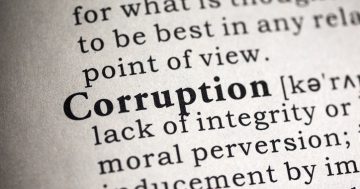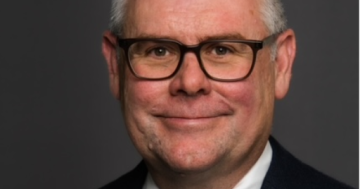Katie Hawkins-Gaar* says it’s important for employers to consider how they will approach an employee returning to the workplace after a bereavement.
 “I have often said, despite my misfortune, I had an incredible set of fortunate circumstances happen to me.”
“I have often said, despite my misfortune, I had an incredible set of fortunate circumstances happen to me.”
If you knew Nation Hahn’s story, you might be surprised to hear him say these words.
In 2013 his wife, Jamie Kirk Hahn, was attacked and killed by their long-time friend.
Two years later, at the trial, Hahn testified against that friend, who was sentenced to life in prison.
And through it all, as Hahn mourned his wife and made sense of his losses, he was the subject of intense media interest and scrutiny.
The misfortune that Hahn experienced is extreme.
Still, he acknowledges his good fortune — especially when it comes to work.
At the time of his wife’s death, Hahn’s employer didn’t have a bereavement policy “but decided to go all in on creating a safe and supportive space,” Hahn said.
He took three months off work, then slowly returned to the office and his duties.
“They allowed for a very slow on-ramp back to work,” Hahn explained, “months and months of on-ramp, working 20 to 30 hours a week, where they gave me room to be inconsistent, as I wove my way through grief.”
Thanks to his employer’s flexibility, Hahn was allowed “to really and truly lean in on grief and to understand bereavement in its fullest form,” he explained.
“For me, that was ideal.”
This is the kind of awareness and understanding that psychotherapist Megan Devine supports.
Just as there’s not one right way to grieve, there are multiple ways to approach returning to the workplace after loss.
Grieving employees may return to the office and want their co-workers to acknowledge the loss.
Others would prefer not to talk about it, and some people might decide to take extended time off or to quit their jobs.
“Some people do need the distraction of work,” Devine said.
“They need something outside of their own personal sphere to focus on in order to survive.”
“There are also people who go back and are like, ‘I can’t believe I have to do this’.”
Devine knows how difficult it can be to face work after loss.
In 2009, her partner died in an accidental drowning.
Devine quit her private practice as a psychotherapist, and the publishing company she also worked for put her on leave, keeping her benefits intact.
It was an optimal situation, one that she wishes every grieving person could experience.
For employees who do return to work after the death of a loved one, there’s plenty to navigate, including how to interact with co-workers, how to talk (or not talk) about the loss, and, in some cases, how to adjust to the cognitive effects of trauma.
Experts like Devine say it’s beneficial for employers to have a policy in place — not only for bereavement, but for handling grief.
Devine tells employers “the time to talk about how we should handle loss on our team is before the loss happens”.
Discussions on how to best support bereaved workers should happen at the HR level, Devine says.
She recommends identifying a point person to get in touch with the employee ahead of returning to work.
“Together, they can assess the employee’s level of comfort in co-workers addressing their loss,” Devine explained.
“The point person can then communicate with the team about what that employee needs.”
For people who return to the office after loss, work will be markedly different.
Interacting with co-workers may be difficult, caring about seemingly small problems might be challenging, and it will likely be harder to concentrate on tasks than usual.
“People who are grieving have to find a way to give themselves space to fully experience the range of human emotion,” said Hahn.
“One of the things I’ve realised is that if you’re a relatively high achiever who works hard and cares about work, finding yourself unable … or even … not wanting to perform at that level for a certain period … feels wholly uncomfortable.”
Devine says it’s normal for grieving people to have trouble remembering things or concentrating on tasks.
Still, she acknowledges, “it’s a shock, especially for highly productive, intelligent, efficient people.”
The cognitive effects of grief are temporary, Devine added.
“But it lasts much longer than you would think.”
Hahn and Devine stress how important it is to be patient — whether you’re the one grieving or you’re working alongside a grieving co-worker.
With time, the effects of loss will fade, and addressing the situation early on will benefit everyone involved.
“Everyone’s grief journey is different,” said Hahn, “and that includes their experience with work.”
For those mourning a major loss, it can take years to fully reconnect with work.
Once that shift happens, though, many people find themselves drawn to more fulfilling or impactful jobs.
Returning to the office and taking on more fulfilling work carries its own challenges.
It’s common for people to feel guilty as they experience success, knowing their deceased loved ones no longer get that opportunity.
Devine says it’s important for grieving people not to punish themselves for achievements post-loss.
“I have a beautiful life, and Matt’s dead. Both of those things are true.”
* Katie Hawkins-Gaar writes the My Sweet Dumb Brain newsletter. She tweets at @katiehawk.
This article first appeared at fortune.com.











